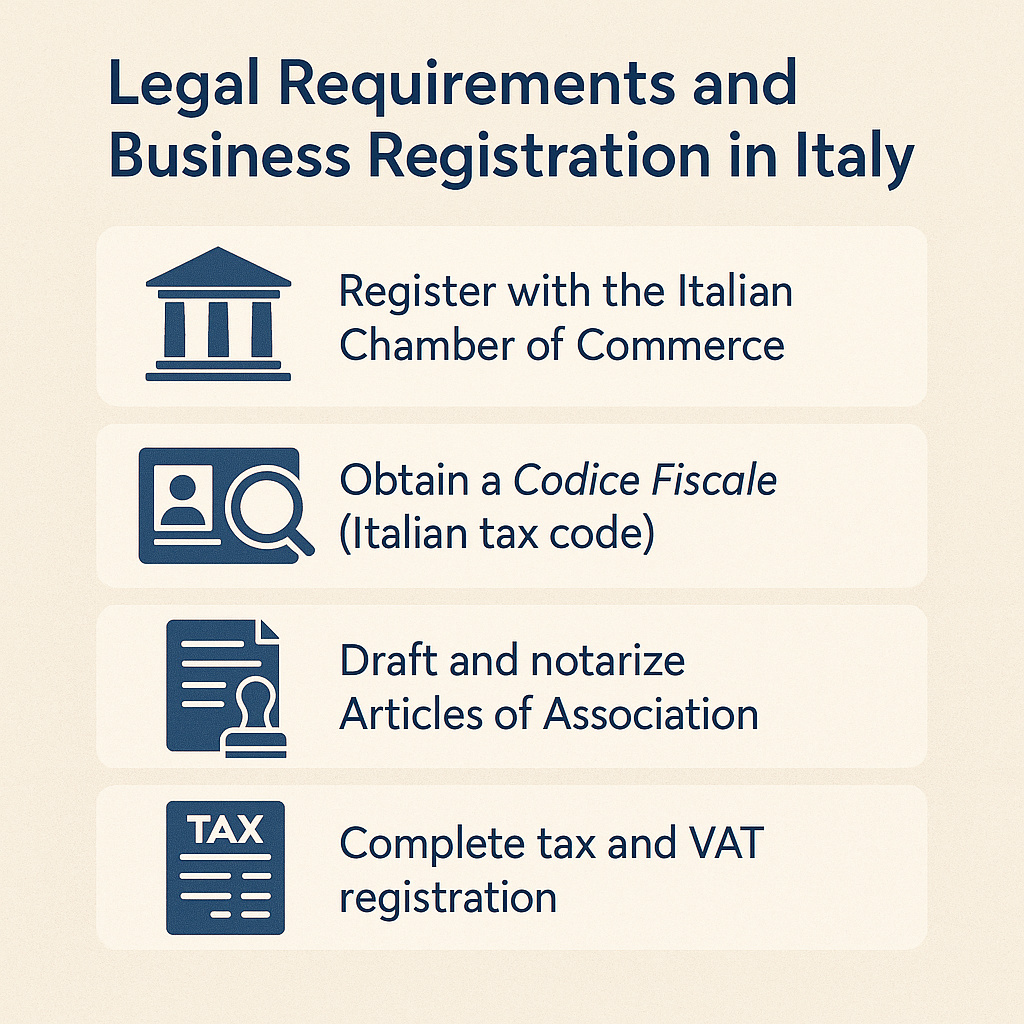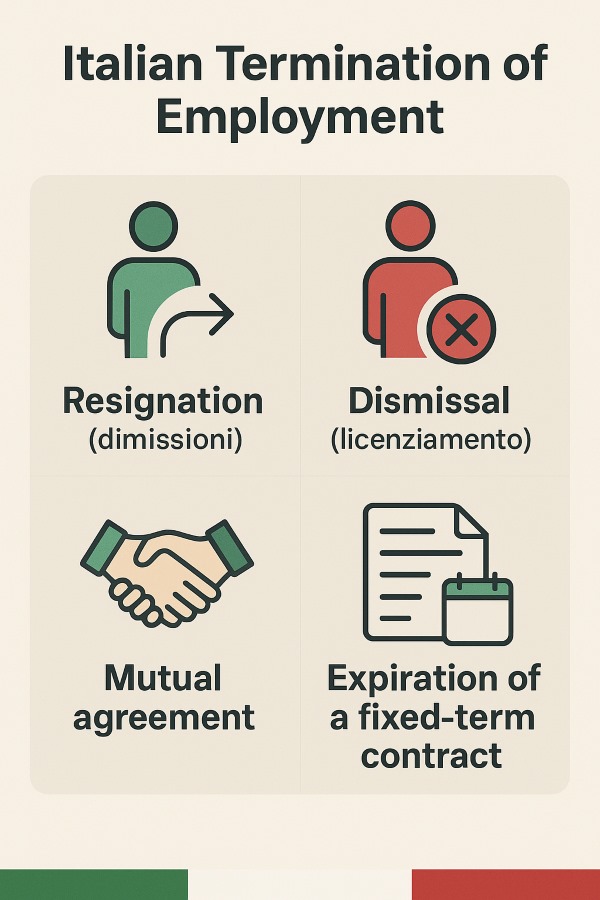Relocating a UK company to Italy isn’t as simple as a registered office address change. It involves closing your UK company or registering a new one in Italy, complying with VAT and tax in Italy, VAT-registration in Italy and negotiations of the consequences for your own personal domicile and corporate business. Post-Brexit, more and more UK companies are thinking of making the move not just for tax purposes, but to remain part of the EU single market.
That’s why, we’ve prepared a short expert guide that outlines how to relocate your UK company to Italy, covering legal requirements, tax regimes, registration steps, residency issues, and practical considerations for working and living in Italy. Let’s have a look.
Table of Contents
ToggleCan You Legally Relocate a UK Company to Italy?
Firstly, let’s understand if you are eligible to relocate your business to Italy. It’s important to understand that you cannot directly move your UK limited company to Italy due to jurisdictional differences. However, there are two effective ways to achieve relocation:
Option 1
Close your UK company and incorporate a new company in Italy. This allows you to start afresh under Italian laws and take advantage of local incentives and tax structures.
Option 2
Establish an Italian branch or subsidiary of your UK company. This retains your UK entity while creating a legal presence in Italy to facilitate local operations.
Each path has its own tax, legal, and operating consequences. For most firms, the preferred form is to set up an SRL (Società a Responsabilità Limitata), the Italian equivalent of the limited company.
Legal Requirements and Business Registration in Italy

Next, it comes to understanding the legal requirements for setting up a business in Italy. To operate legally, your company must:
- Register with the Italian Chamber of Commerce, which serves as the official registry for all business activities.
- Obtain a Codice Fiscale (Italian tax code) for the company and its directors.
- Draft and notarize Articles of Association, which define your business structure and operational rules.
- Finally, complete tax and VAT registration, including the application for an Italian VAT number (Partita IVA).
Apart from that, you may have to obtain sector-specific permits depending on your industry. It is also important to note that regulations vary from one region to another, so regulation in Milan may vary from that in Rome or Florence.
Residency Permits and Working in Italy
If you or the directors of your company want to move to Italy, a residency permit will be necessary for sure. Common visa pathways for business owners and executives are:
- Intra-Company Transfer (ICT) Permits: For managers or specialists relocating from the UK branch.
- Self-Employment Visas: Suitable for those starting or running a business independently.
- Elective Residency Visas: Ideal for individuals with passive income who wish to reside without working.
You’ll typically need a business plan, proof of adequate income, and evidence of accommodation. For staff relocation, local employment contracts and work permits are also required.
Italian Tax System: What to Know Before You Relocate
Now, let’s discuss taxation. When relocating your UK company to Italy, understanding Italian tax obligations is essential. Your business must comply with several criteria:
- Corporate Income Tax (IRES), currently set at 24% on net profits.
- Regional Tax on Production (IRAP), averaging 3.9% but varying by location.
- Value-Added Tax (VAT or IVA), with a standard rate of 22%.
These applications typically include a business proposal, proof of adequate income, and evidence of accommodation. For staff transfers, local labor contracts and work permits also have to be included.
Additionally, Italy and the UK share a double taxation treaty, which helps avoid paying taxes on the same income in both countries. However, this requires careful structuring and reporting.
Business Structures for Relocation
The second key decision is to choose the appropriate business form. I. Italy, you may consider several options like
SRL (Società a Responsabilità Limitata)
This is ideal for small to medium enterprises. It limits liability and allows operational flexibility but requires formal bookkeeping and share capital.
SPA (Società per Azioni)
Exceptionally suited for larger companies or those looking to raise capital. It has higher compliance standards and governance structures.
Branch Office
Maybe the most popular one. This is a direct extension of your UK company. It provides operational presence but does not offer independent legal status, which may limit local benefits.
Sure, each structure has varying tax consequences, liability issues, and administrative requirements. Seeking the view of a financial or legal professional is strongly recommended.
Setting Up and Registering for Tax in Italy
And then there is the registration procedure. Following are the main steps to establish and register your company for taxes in Italy:
1. Draft your company Articles of Association and bylaws, which must be signed in the presence of a notary.
2. Register your company with the Italian Business Register, as run by the Chamber of Commerce.
3. Get a VAT number and tax ID, necessary for all commercial transactions.
4. Open a business bank account in Italy, to deposit capital and make normal transactions.
5. Enroll in INPS (social security) and INAIL (insure workplace) to complete labor compliance.
You also need to maintain proper accounts by all your companies in accordance with Italian accounting regulations and annual accounts must be produced.
| Step | Description |
|---|---|
| 1. Chamber of Commerce | Register with the Italian Chamber of Commerce as the official registry for business operations. |
| 2. Codice Fiscale | Obtain a Codice Fiscale (Italian tax ID) for the company and its directors. |
| 3. Articles of Association | Draft and notarize your company’s Articles of Association defining structure and operations. |
| 4. Tax and VAT Registration | Register for Partita IVA (VAT number) and fulfill tax obligations with Italian authorities. |
| 5. Sector-Specific Permits | Check if your industry requires specific regional or sectoral licenses or authorizations. |
Residency and Tax Registration for Individuals
After the business relocation, business owners also need to have legal permits to stay in Italy. If you will be living in Italy for more than 183 days in a tax year, you will become an Italian tax resident. In that case, Italy will tax your worldwide income.
To prepare, make sure to:
- File a P85 form with HMRC to inform the UK authorities of your departure.
- Check eligibility for split-year treatment, which could reduce your UK tax obligations.
- Gather necessary documents for Italian residency, including housing contracts and proof of income.
If you fail to properly navigate these tax residence issues, you simply can’t ensure compliance and minimize your risk of double taxation.
Foreign Management Risk (Esterovestizione)
When relocating a UK company to Italy, it’s essential to understand the Italian concept of esterovestizione, governed by Art. 73 of the TUIR (Testo Unico delle Imposte sui Redditi). According to this law, a company legally established abroad may still be considered an Italian tax resident if its place of effective management (sede dell’amministrazione effettiva) is in Italy. That means if key business decisions are made from Italy or if company directors reside in Italy and manage operations from there, Italian tax authorities could classify the company as Italian resident for tax purposes. This would subject the company’s worldwide income to Italian corporate taxation, regardless of its formal registration abroad.
To avoid unintended tax residency and penalties, it’s critical to structure your governance, decision-making, and documentation carefully, and to seek guidance from a tax professional familiar with cross-border corporate rules.
Practical Aspects of Living in Italy as a Business Owner
Beyond business, adapting to daily life in Italy is crucial. Here are some practical considerations:
- Register with your local health authority (ASL) to access public services. Your INPS contributions typically cover healthcare costs.
- Renting or buying a residence is necessary not only for comfort but also to support your residency application.
- Contributions to INPS are mandatory and based on your income. These are essential for both healthcare and retirement benefits.
Also, learning the language and understanding Italian business etiquette can significantly improve your success. Building trust, respecting hierarchy, and participating in local networking events are key aspects of doing business in Italy.
So, Is Relocating Your UK Company to Italy Worth It?
Relocating your UK company to Italy offers exciting opportunities—from gaining access to the EU market to enjoying a vibrant Mediterranean lifestyle. That said, it demands strategic foresight, legal clarity, and cultural adaptability.
With the right business structure, tax strategy, and local support, your relocation can open doors to long-term growth and profitability in one of Europe’s most dynamic economies.
Need Help Moving Your UK Company to Italy? Contact us below.
🇮🇹 Quiz: Moving Your UK Company to Italy
Would you like to read more about similar subjects? Then, take a look at our related articles here, How Financial Investments are Taxed for Italian Residents, Italian Exit Tax: Understanding the Rules and Considerations and Immigrating in Italy by Investment.




